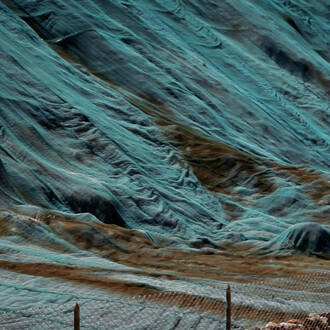MINUS SPACE is honored to present the solo exhibition Julian Dashper: The Future. This is the late artist’s second solo exhibition at the gallery and commemorates ten years of his passing. The exhibition will highlight select art works produced during the 1990s and early 2000s.
Julian Dashper (1960-2009) is one of the most renowned reductive artists of his generation and was one of the gallery’s earliest international collaborators, starting around the time of our inception in 2003. Working across a wide array of media for nearly three decades, Dashper produced conceptually and aesthetically rigorous paintings, works on paper, installations, albums, performances, and ephemera. Much of his work concerns the connection between abstract art and popular culture. One recurring theme is the reading of international Modernism in New Zealand art, and how in New Zealand, great Modernist works are known largely through reproduction. Another topic of investigation is the art historical canon – the rarified list of artists regarded by culture in general as great.
A 25-year retrospective of Dashper’s work, entitled Midwestern Unlike You and Me, curated by Christopher Cook and David Raskin, traveled throughout the United States in 2005-2006, making stops at the Sioux City Art Center, Iowa; Sheldon Memorial Art Gallery, Nebraska; and Ulrich Museum of Art, Kansas. In the catalog accompanying the exhibition, Dashper published his text Untitled (on the 4th July) 2005, in which he writes 99 distinct aphorisms, including several prescient statements that have only grown more poignant since his passing: 5. A white wall. With a picture on it. A round picture. I think that it is a picture. Maybe it is not? 6. Let me call it an object. This object was not made by me. But it was made by an artist. Let us call it an artwork. It seems more personable than calling it an object.
I used to like to watch paint dry. It helped me understand the painting, or at least that is what I used to tell people watching me watch it dry. After finishing a painting I would go and wash up and come back to the studio and stand quietly in front of it. It seemed important at the time. That was in the early 1980s.
I was forced to become a minimalist. Or that is what I still like to tell people. Coming from where I come from, I had no choice. Or that is what I like to say. Shipping things long distances affects the way that I make them in the first place. In 1990 that problem first became a subject in my work. By 2000, that subject had disappeared and become a method instead. A method that I did not think about any more. Much like getting dressed. It was just something that you do. Which clothes you choose is another story. It is all about how you get “into the zone,” after all. I am also fond of telling people that I consider minimalism to be a verb of sorts. Not a noun. Not really an adjective either. More of a verb. A doing word, as I learnt in my astronaut’s costume back in the early 1960s. A word that expresses the idea of an action. The idea of minimalism.
I do not make art to illustrate a theory, to be shown in bienniales or airports (which seems to be the same sort of thing to me these days), or potentially to sell. I just thought I would say that, even though it should be a given by the time that you read this. I make it for myself. An audience of one. A table set for myself. Guests welcome to pop in. Please ring first.
Personally I am convinced that the last great thing that we do not understand is time. Call it the fourth dimension if you will.
Put it this way. I do not understand time. And I also do not understand why I seem not to have enough of it at present.
As I have written before, it is somewhat difficult as an artist to write about my work because the reader often assumes that is the sole truth. The whole truth and nothing but the truth. Whilst I know what my work is about, I also believe that a wider truth comes to all artwork in time. And that wider or extended truth is something that is generated by the culture and context surrounding the work in general. Remember that culture is not always a dirty word.”













